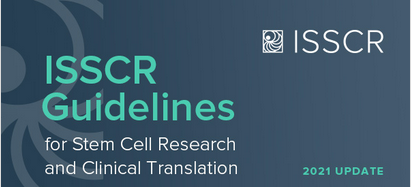Aggregated News

I note troubling inconsistencies in the revised guidelines for stem-cell research and clinical translation, issued in May by the International Society for Stem Cell Research (ISSCR; see Nature 594, 18–19; 2021). These imply that, in time, research that involves making heritable changes to the human genome will be permitted.
On page 9, the guidelines divide research into review categories. Research that is “not allowed” is split into 3A (“currently unsafe”, with no mention of ethics) and 3B (“lacks compelling scientific rationale or is ethically concerning”). Yet page 14 mentions ethics in both categories, and rebadges 3A as “currently not permitted” and 3B as “prohibited”.
Heritable human-genome editing is explicitly designated 3A. But, depending on one’s perspectives, and whether referring to page 9 or 14, it could just as legitimately be in 3B. There are sound arguments to support the view that research into heritable human-genome editing lacks a compelling scientific rationale and is ethically concerning. (See my 2019 book Altered Inheritance.)
Further, a survey last year found that 75 of 96 countries with policies on such...



